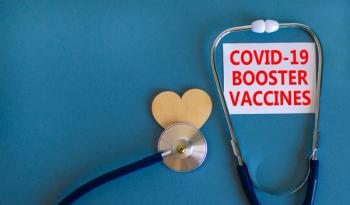
Study Finds Mental Health Was "Minimally" Affected After COVID-19
According to a study published in the British Medical Journal, results showed consistency across analyses reviewed that most estimates of symptom changes were close to zero and not significant.
Mental health may have not been as affected by COVID-19 as many would think.
According to a recent study published in the
After reviewing over 94,400 unique titles and abstracts including 137 studies from 134 cohorts, researchers found there were no changes found for general mental health or anxiety symptoms, but depression symptoms worsened minimally.
Researchers conducted this search to rest concerns about COVID-19-related mental health as low-volume of evidence has become a barrier to evidence and decision-making, the study said. Many cross-sectional studies have reported numbers of participants with a prevalence of mental health problems; however, none have been compared to instances before the pandemic.
Results from the study shared most of the reports reviewed were from high income (77%) or upper middle income (20%) countries.
Among women or female participants, general mental health, anxiety and depression symptoms worsened by minimal to small amounts. Some subgroups found in the study other than women were parents and sexual and gender minorities who experienced mental health declines, but these declines were relatively small.
In 27 other analyses, five suggested symptoms worsened by minimal amounts, and two suggested minimal or small improvements. No other subgroup experienced changes across all outcome domains. For example, in three studies with data from March to April 2020 and late 2020, symptoms were unchanged from pre-COVID-19 levels at both assessments and increased initially then returned to pre-COVID-19 levels.
In addition, the study showed consistency across the analyses reviewed that most estimates of symptom changes were close to zero and not significant. Changes identified were minimal to small. Among general population studies, changes in general mental health or anxiety symptoms, and the worsening of depression symptoms were minimal.
Researchers claim there were some limitations to the study including the lack of evidence of a large-scale decline in mental health. The lack of evidence could be because “people are resilient and have made the best of a difficult situation.” The minimal changes could also reflect steps that governments have taken to support mental health.
The World Health Organization, other pan-national organizations, and governments across the globe have produced strategies for dealing with mental health and have invested in resources to support public mental health, even in countries where mental health had not been a priority previously, the study said.
Newsletter
Get the latest industry news, event updates, and more from Managed healthcare Executive.























